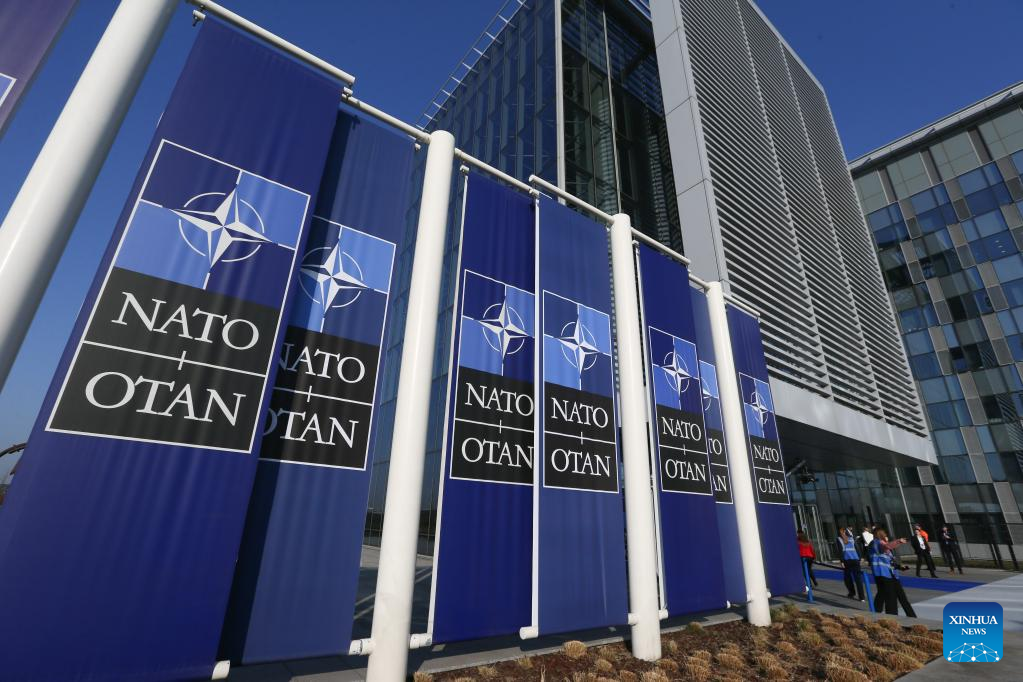
U.S. President Joe Biden (not pictured) meets with Finnish President Sauli Niinisto in the Oval Office at the White House in Washington, U.S., March 4, 2022. /CFP
U.S. President Joe Biden (not pictured) meets with Finnish President Sauli Niinisto in the Oval Office at the White House in Washington, U.S., March 4, 2022. /CFP
Editor's note: Freddie Reidy is a freelance writer based in London. He studied history and history of art at the University of Kent, Canterbury, specializing in Russian history and international politics. The article reflects the author's opinions, and not necessarily the views of CGTN.
While events in Ukraine continue to cause a seismic upheaval to the people of that region, the impact of the conflict has far-reaching outcomes with potentially long-term consequences. The outbreak of hostilities in mainland Europe has caused several nations to review their own defense measures.
Among the nations to re-evaluate their position is Finland. The Nordic nation shares a border with Russia which stretches about 830 miles (1,336 kilometers), a sizable flank which is feeling particularly vulnerable in Helsinki.
One of the hitherto resisted options in bolstering Finland's defensive capability is applying for NATO membership. What would such a move mean for regional stability and could it be seen as a provocative act?
Since the start of the present crisis, opinion within Finland has radically changed with the Finnish Broadcasting Company Yle recording 53 percent in favor of joining NATO, a reversal of a majority "no," this figure has since leapt to 62 percent.
Finnish Minister of Defence Antti Kaikkonen points to the prevailing belief that "people have thought that we live in peacetime in the 2020s, but now we have conflict in the middle of Europe, not so far from Finland." But he has also said, "Right now, it is not the right time to apply for NATO membership," according to Yle.
To an alarmed population, one which has a collective memory of the Winter War of 1939 (between Soviet Union and Finland) , such a shift in attitude is understandable. However, it does call into question the defensive capabilities of the European Union (EU), something which some members are now acutely conscious of.
Article 42 of the EU Mutual Defence Clause 2016 obliges member states to come to the aid of a fellow EU member, such as Finland, if under attack. This guarantee appears of little comfort.
The consequences to regional stability of joining NATO depend on whether the alliance is viewed as a defensive or offensive alliance. Moscow views NATO expansion as a serious security concern which places a large number of military assets along its border.
NATO members argue that such an alliance is indeed a defensive one, with no cause for alarm needed among its neighbors.

The NATO headquarters in Brussels, Belgium, March 24, 2022. /Xinhua
The NATO headquarters in Brussels, Belgium, March 24, 2022. /Xinhua
Naturally, there is a tussle over cause and effect. NATO would argue that it is necessitated by Russian military operation and Russia may well argue that a muscular defense posture is a legitimate response to military presence on its doorstep.
To the Finns, despite the warning from the Finish President Sauli Niinisto of a "major escalation risk" in seeking NATO membership, the status quo no longer seems acceptable. A point which the President acknowledged, "The starting point is that we are looking at something else than continuing just like this."
To Niinisto, NATO membership is but one option. In practical terms, Finland's application would need to be unanimously accepted by all 30 members, of which there is no guarantee considering the alliance's own fears over destabilizing the region.
One more prudent alternative posited by Finland's president is a tripartite defensive alliance with neighboring neutral Sweden, which would be underwritten by the United States; something which Niinisto claimed he "got a lot of support from Washington."
Unlike many NATO members, Finland's large shared border with Russia and proximity to St. Petersburg, which is just 200 miles (322 kilometers) beyond the border, poses grave concerns to both parties that would lead to a pervasive diplomatic burden with the potential for escalation.
NATO membership may appear a good short-term solution in quelling domestic concern, but the wider goal of long-term peace is surely better served by ensuring that concentrations of military hardware are kept as far apart as practically possible.
Every nation has the right to defend itself but also the responsibility of ensuring peace along its borders, reducing points of friction and maintaining a dialogue with its neighbors.
(If you want to contribute and have specific expertise, please contact us at opinions@cgtn.com. Follow @thouse_opinions on Twitter to discover the latest commentaries in the CGTN Opinion Section.)

